
Watch: Debora Moore
A pioneer of glass techniques, this renowned creator is one of the few Black female artists in her medium.
Through public murals, collaborative projects and custom sneakers, this artist is leaving her footprint on Seattle history.
by Jasmine Mahmoud / June 13, 2023
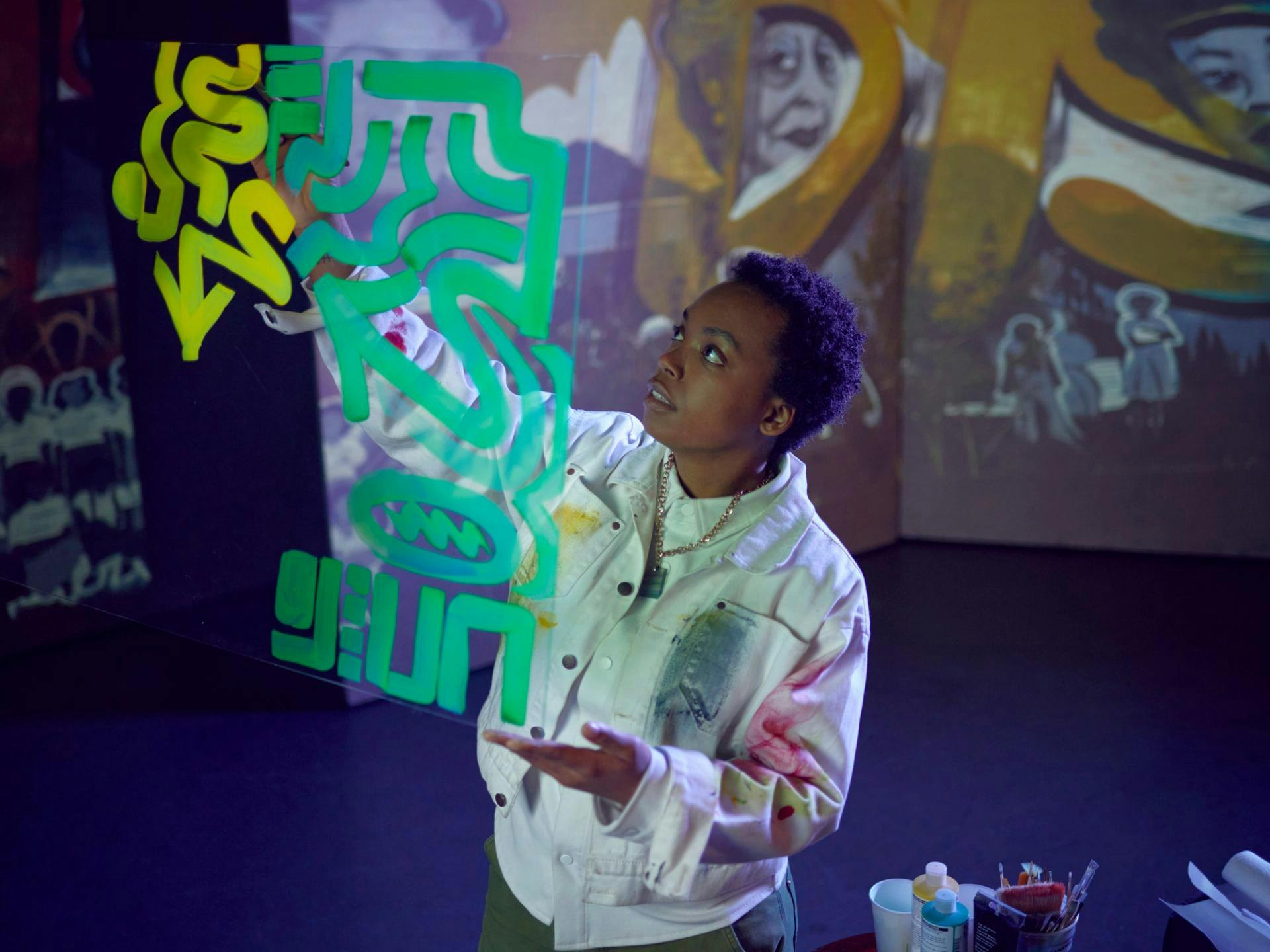
For some, a shoe is just a shoe. For Takiyah Ward, a shoe is a vehicle for creativity, collaboration and change.
As part of her diverse artistic practice, Ward designs custom sneakers. On one special pair, an ombre gradation intensifies toward the soles, fading mossy tones into darker greens; Seattle’s skyline, complete with the Space Needle, punctuates the heels.
Anchoring these designs are painstakingly rendered portraits of Black people killed by police. George Floyd. Breonna Taylor. Herbert Hightower Jr., Charleena Lyles. Next to each face is the deceased’s name, painted in bold black-and-white lettering.
The result: dynamic wearable art that allows for grief and remembrance of Black lives ended too soon. Designed by Ward, this shoe series was created for Russell Wilson in 2020, part of the NFL’s “My Cause My Cleats” initiative.
“Creativity is the essence of existence,” Ward says. “That’s my belief, why we’re here. Turning something from nothing is what it’s all about.”
Born and raised in Seattle, Ward is a wildly multifaceted artist: a muralist, dancer/choreographer, television host, connector, entrepreneur and the founder of T-DUB Customs, which personalizes apparel including shoes, skates, shirts and jackets.
As a public artist, Ward has created murals for Africatown and Midtown Square highlighting local Black histories. In 2020, Ward became the inaugural Waterfront Park Artist-in-Residence, and organized and participated in the creation of the Black Lives Matter mural on Capitol Hill, now an enduring Seattle memorial.
In everything she does, Ward seeks to enable artistry in others, so “people are able to speak truth to power through art.”
Ward’s urge to empower others is reflected in her family history. In 1962, Ward’s grandfather moved to Seattle from Texas to work for Boeing. Soon after, sparked by seeing too many Black Texans evicted by white landlords, he began purchasing properties around Seattle’s Central District. He and his wife raised their daughters, including Takiyah’s mother, Schelia, on Black Panther Party principles, including “Each One, Teach One.”
“We were very strong-willed people, but we were definitely about community and people, always,” Takiyah says.
Though Ward officially founded T-DUB Customs in 2017, her customization practice originated in middle school (first South Shore, later Dimmitt Middle School). “I was working on a class project,” she recalls, “and a blob of paint fell from the brush and hit a shoe that I had next to my desk.” Soon after, Ward’s mother purchased airbrush guns so she could experiment on apparel.
At Garfield High School, Ward was surrounded by murals of Jimi Hendrix, Quincy Jones, and Bruce Lee. “There was art everywhere,” she says. But there were also the difficulties of high school, which pushed her further into artistry.
“It’s self-expression. Being able to stand out from the crowd has always been very important to me because I’ve always considered myself a little bit of an outcast — being an artist, being queer, navigating those spaces at a young age,” she says. “It’s also armor.”
To Ward, footwear customization is also about working with limited materials and reimagining possibilities. “You don’t always get to have 37 pairs of shoes … you get to reinvent the things that you have and give them new life and make it fresh.”
After studying architecture at the New York Institute of Technology, Ward returned to Seattle in 2011. She worked in retail for several years before an encounter with a rude customer led her to quit and officially launch T-DUB Customs.
As Ward began selling her customized apparel at Seattle vendor fairs, she met people who loved her art but thought they themselves could never be artists. “I really try to help people get out of that mindset,” Ward says. A driving force in her work became “helping people discover their creativity.”
Ward’s instinct for facilitating creative action came into sharp focus in 2020, when she organized Capitol Hill’s Black Lives Matter mural.
After experiencing an early bout of COVID-19 that March, Ward found herself in a contemplative space. “I spent a lot of that time communing with myself,” she says. “If I get on the other side of this,” she thought, “who do I want to be and how do I want to exist in the world?”
When George Floyd was murdered in May, Ward and her partner, Caela Bailey, were living downtown. “We were living in a war zone,” Ward recalls. “The internal conversation of, ‘Wow, it doesn’t matter what the world is going through … Black lives still do not matter.’ I was very much grappling with that conversation.”
Her collaborative and creative response kicked in. Working with Seattle muralist Joey Nix, Ward sent messages to 15 local artists, asking them each to paint one letter of a giant Black Lives Matter mural stretching down Pine Street from 10th to 11th avenues. “It was very quick. Two days we went from idea to reality.”
That charged reality became polyvocal with 16 lively, unique letters. A shiny gold chain grounds Aramis Hamer’s “V.” Pastel organic splotches playfully dance across Barry Johnson’s “E.” Abstract blots of blues, yellows and purples spill over the borders of Moses Sun’s “M.” A rainbow-hued hair pick fills up Brandon Thomas’s “A.”
One artist didn’t answer the call in time, leaving Ward to tackle both “T”s: Red, green and black — the colors of the Pan-African flag — animate the letters, while white outlines give them angularity, structure and a depth that seems to sink into the street.
“I was thinking about the words Black Lives Matter,” Ward says, “and how it’s very much a statement for now, but [also] something that we’ve always carried. Civil rights. Jim Crow. What resonated with me is that cyclical nature and feeling — We’ve been here before — and I was trying to visualize that idea.”
Once the mural was complete, the contributing artists formed the Vivid Matter Collective (VMC) to aid one another both personally and professionally.
“People were obviously having issues with money, housing [and] their jobs,” Ward recalls. “We paid for people to have the tools and materials they needed to do their work. That became the underlining mission of VMC: to make sure that people can create art at the level that they want to.”
That mutual aid continues. In 2021, VMC partnered with Molly Moon Neitzel to curate works by member artists in the storefront adjacent to Molly Moon’s Ice Cream shop on Capitol Hill.
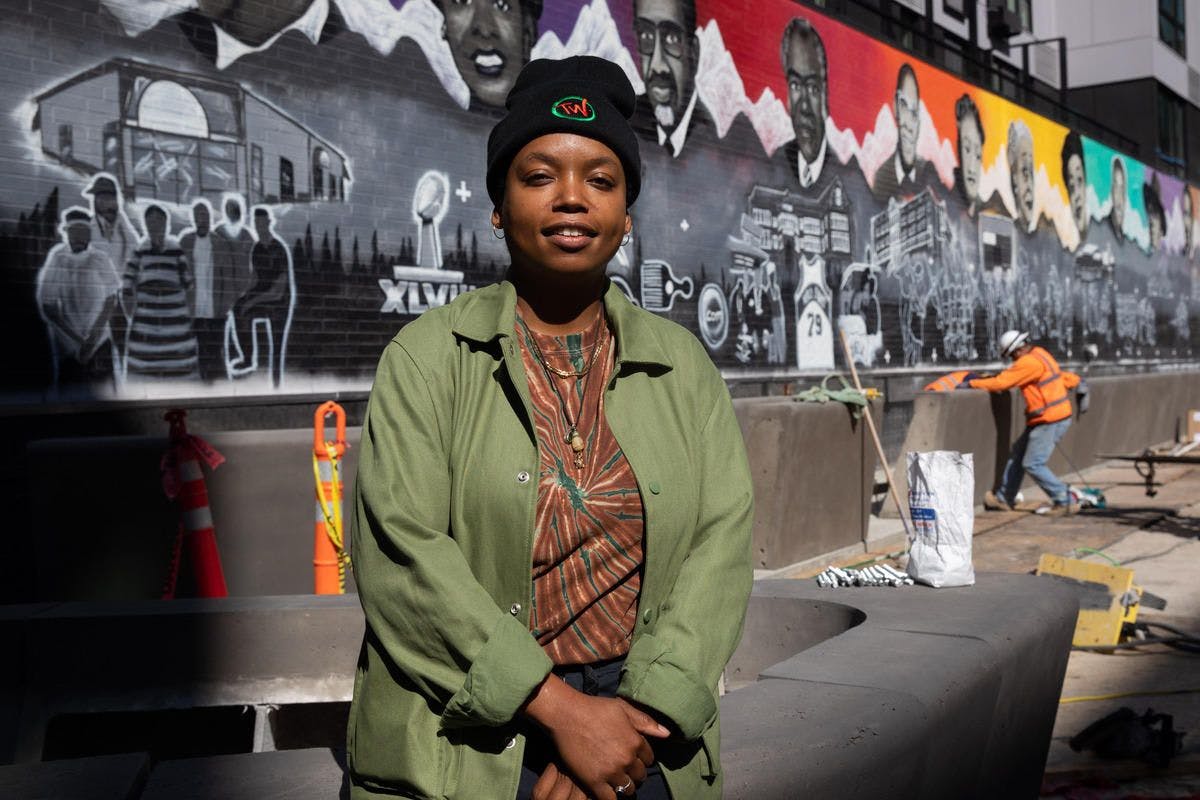
“Without her, none of this would’ve been possible,” VMC artist Moses Sun says of Ward. In 2022, Sun curated an Afrofuturist group exhibition at Seattle’s Museum of Museums. In it, Ward exhibited a visionary sneaker display, “Hollaback to the Future FOR-US ONES.”
Energetically drawn in thick black graffiti-like letters, the words “For Us” center the 3D sculpture. One metallic gray sneaker sits atop the curved, neon-lit plinth, while the other dangles from it vertically. Each has DeLorean wheels, inspired by the film Back to the Future, and tags in red and green. Part art, part fashion and part architectural display, this work was also part ode to the future — especially a future for Black people.
“She’s an example for other artists,” Sun says. “She understands the intricacies of Seattle from a social point of view, a political point of view, a neighborhood point of view, and that love and impact that she has is infectious. Takiyah is passionate about the community of Seattle.”
That passion is clear in Ward’s public art. In her Midtown Square mural, rainbow colors shade the words “Central District,” which stretch 130 feet across the building’s courtyard, alongside black-and-white portraits of past community leaders. Ward researched Seattle history to select people who made an impact, from journalist Horace Cayton Sr. and entrepreneur William Grose to artists like Zoe Dusanne and Syvilla Fort.
“[That] was very important given everything that had been going on in the CD, all the gentrification, all the development, all the displacement,” Ward says, “No matter who lives here, you’re going to know who was here.”
Ward is just as connected to the figures of Seattle’s present. In 2022 she launched “Art of the Matter,” a Converge Media web series. With atmospheric hip-hop beats, a chunky white spray-paint font and shots of Seattle’s skyline, each episode finds Ward talking to local artists.
In one, Ward visits the studio of Barbara Earl Thomas. Other episodes celebrate VMC artists including Moses Sun, Aramis Hamer and Barry Johnson, and Ward’s family, including her mom, Schelia Ward, an unofficial historian of Black Seattle and a huge motivator for Takiyah.
Caela Bailey, a performing artist and Ward’s partner, says Takiyah’s passion for Black Seattle’s histories draws from her mother, “who holds the legacy of Black Seattle because it’s not necessarily documented through the city.” Bailey continues: “Takiyah is very intentional about making sure those stories are preserved.”
In summer 2023, Ward plans to open a business on 24th Avenue and East Union Street, the very same corner where her grandfather used to own property. Her shoe dry-cleaning service, called The Re-Sole 206, is communally supported by a crowdfunding campaign as it nears opening.
“For Takiyah’s shoe store to be getting ready to open up there now is a full-circle moment,” Schelia Ward says. “It’s like my father got to get back on that corner. Our family got to be back on that corner.”
Ward says hers will be “Seattle's first dry cleaner for sneakers, probably the only Black woman-owned one in the West Coast.” In addition to customization and retail, the store will also host workshops and events — ways to connect, collaborate and create.
In that way, Re-Sole will carry on both a powerful local lineage and Ward’s own legacy: making shoes, streets and Seattle more expressive and collaborative through her artistry.
Black Arts Legacies Project Editor

A pioneer of glass techniques, this renowned creator is one of the few Black female artists in her medium.
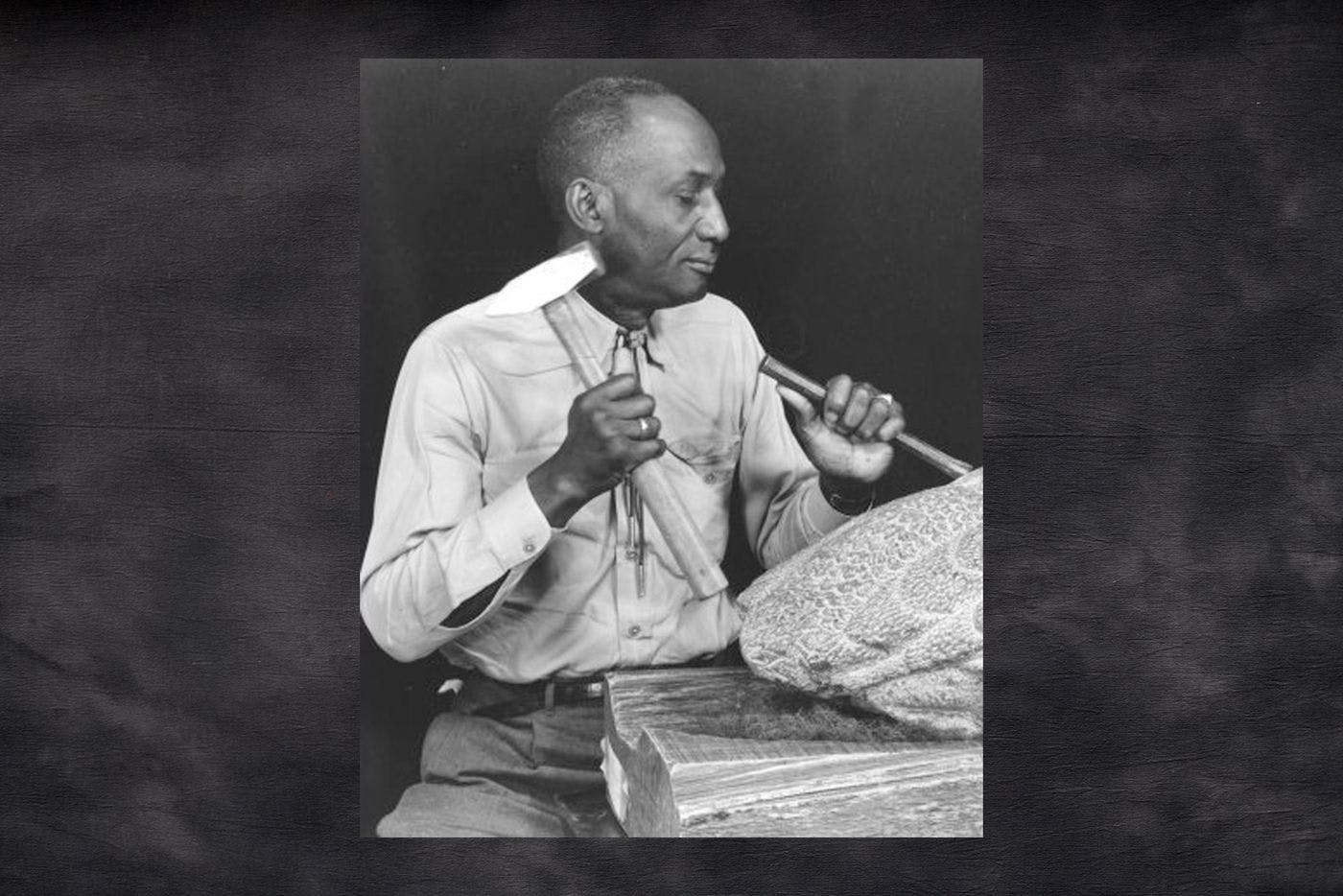
An influential member of the noted Northwest School, the Central District sculptor turned his home into a community center for artists.
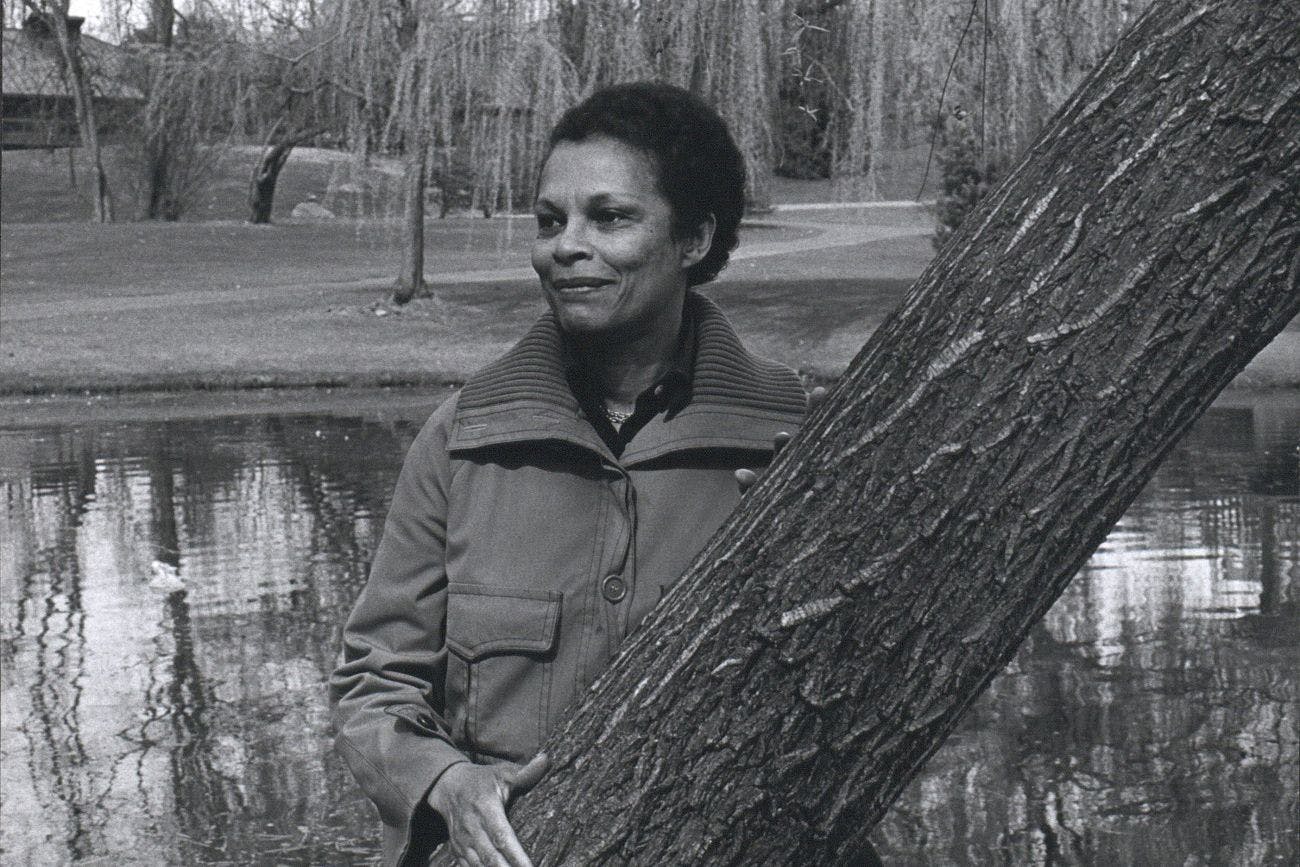
As a direct connection to the Harlem Renaissance, this often overlooked painter inspired generations of Seattle movers and shakers.
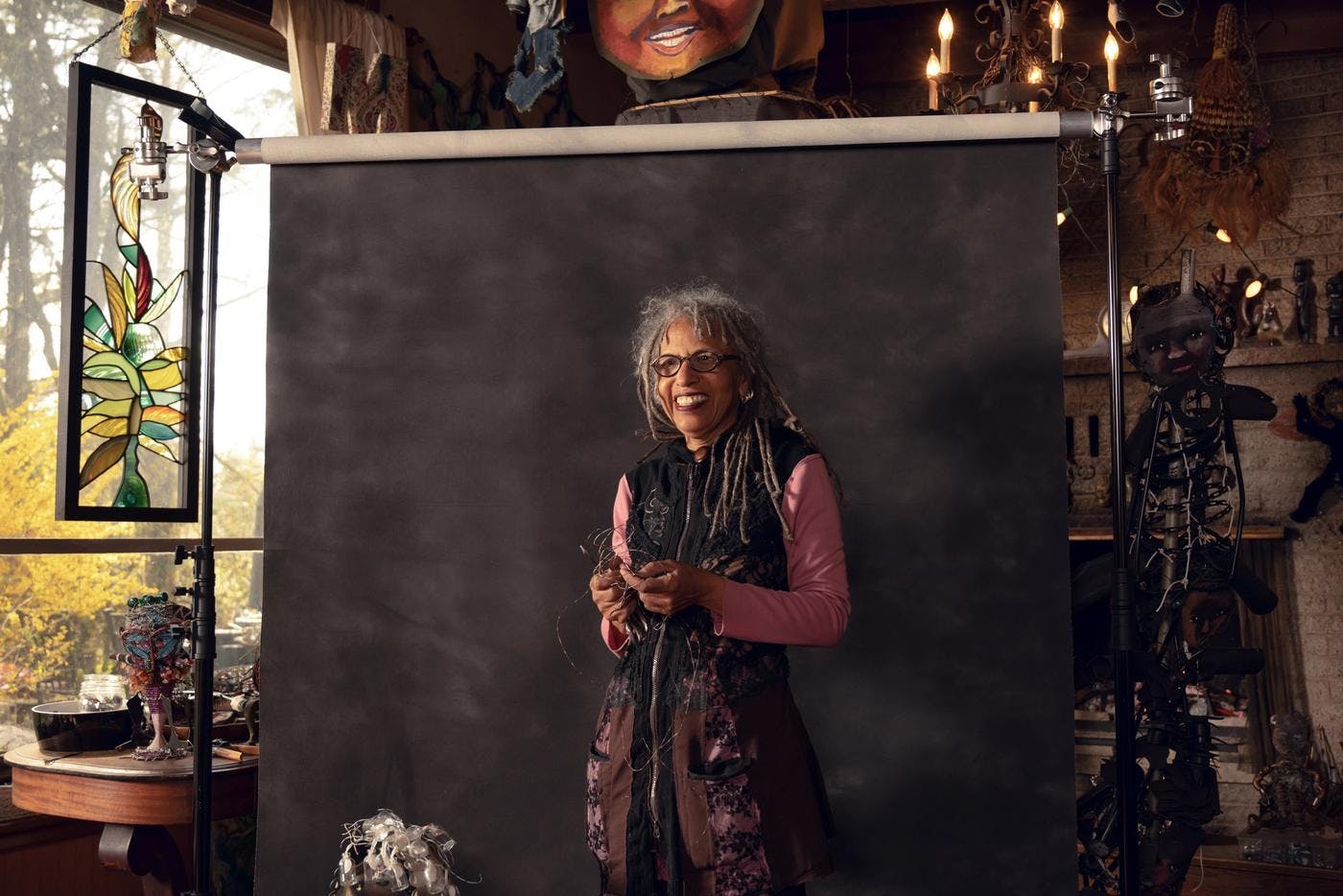
Salvaging old cloth and scrap metal, the longtime Seattle sculptor finds beauty in what’s discarded.
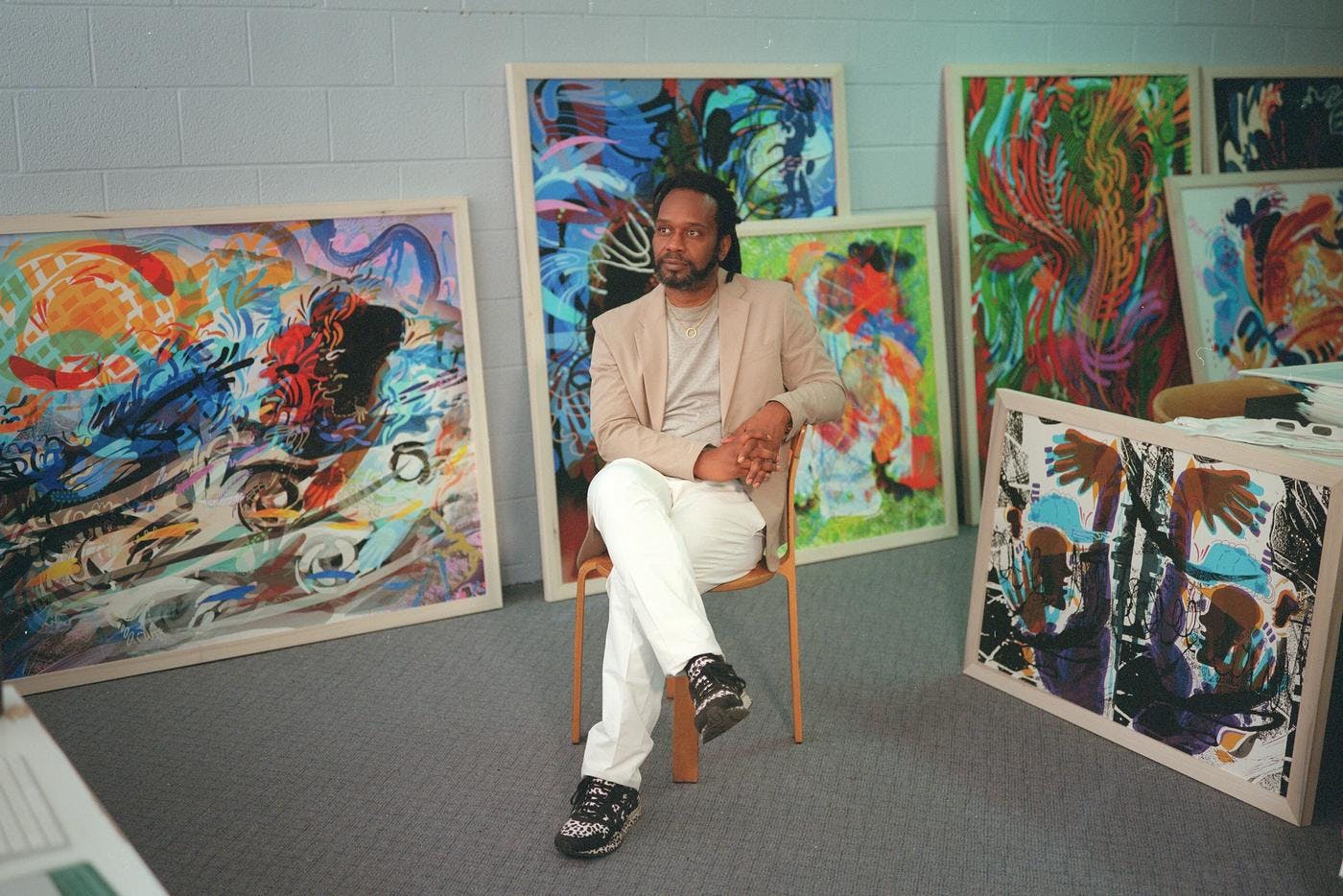
This Seattle artist channels his personal history and activism into vibrant murals and abstract paintings.
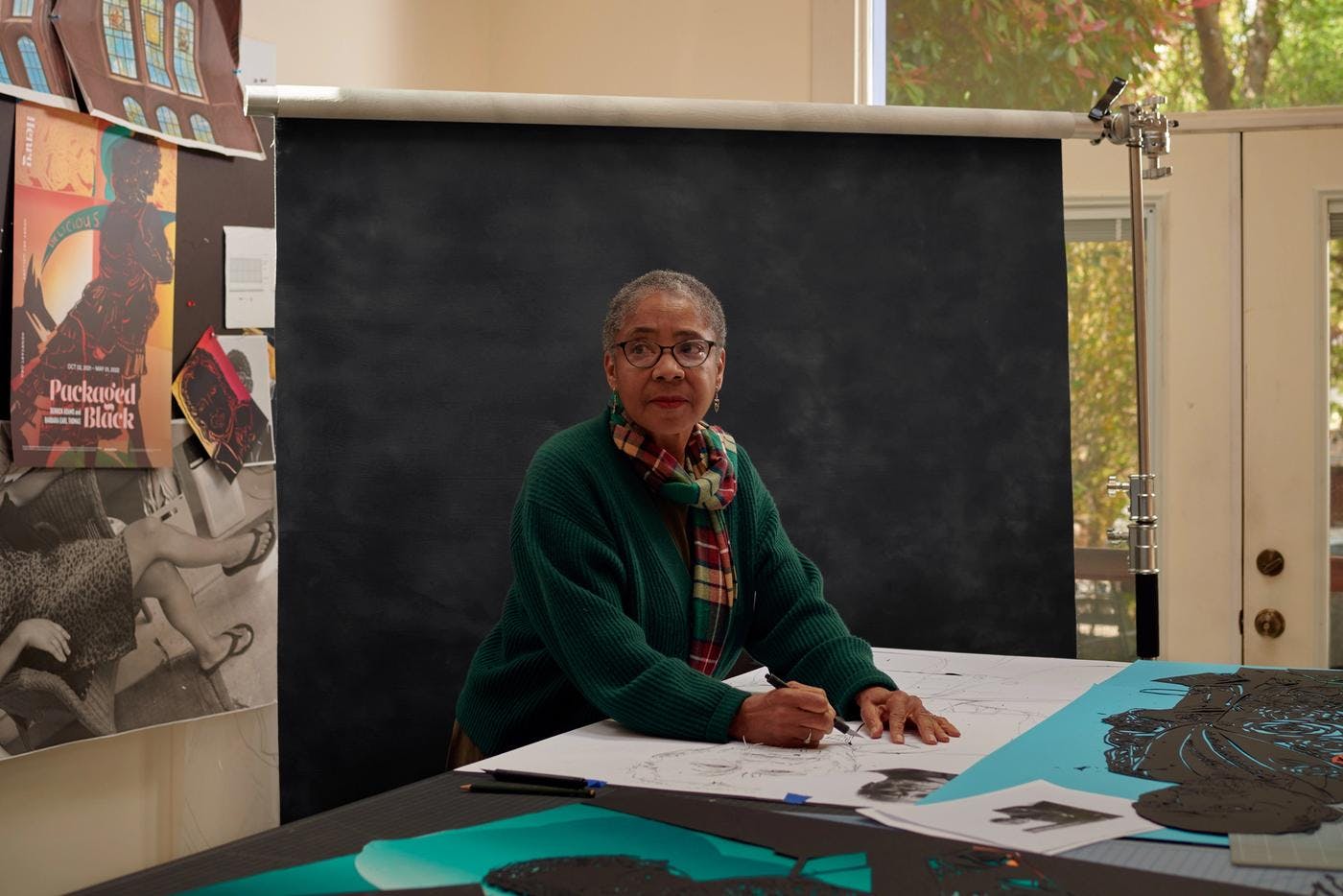
With meticulous skill and a communal approach, the longtime Seattle artist has cut her own path.
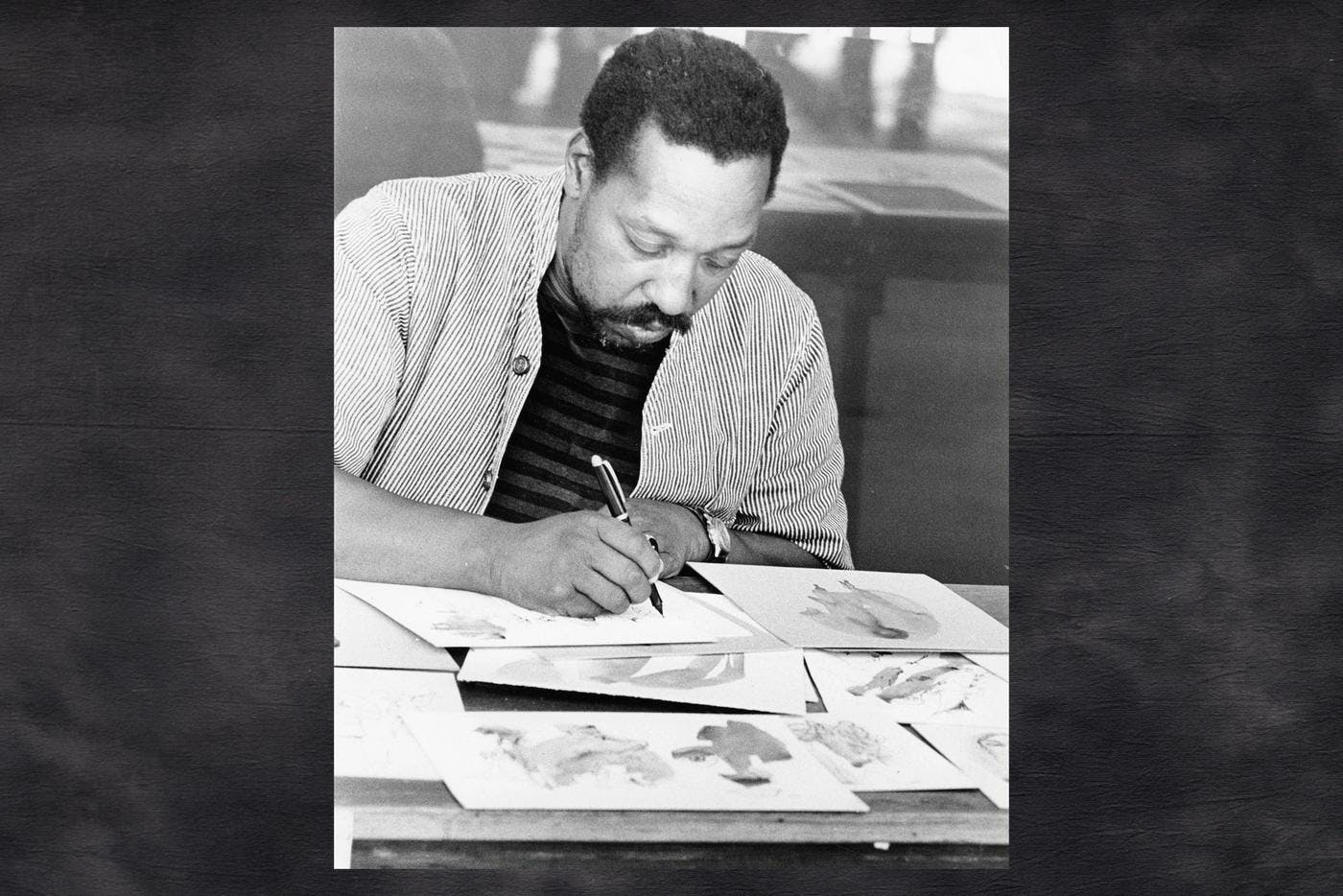
The first Black art instructor in Washington was an experimental artist ahead of his time.
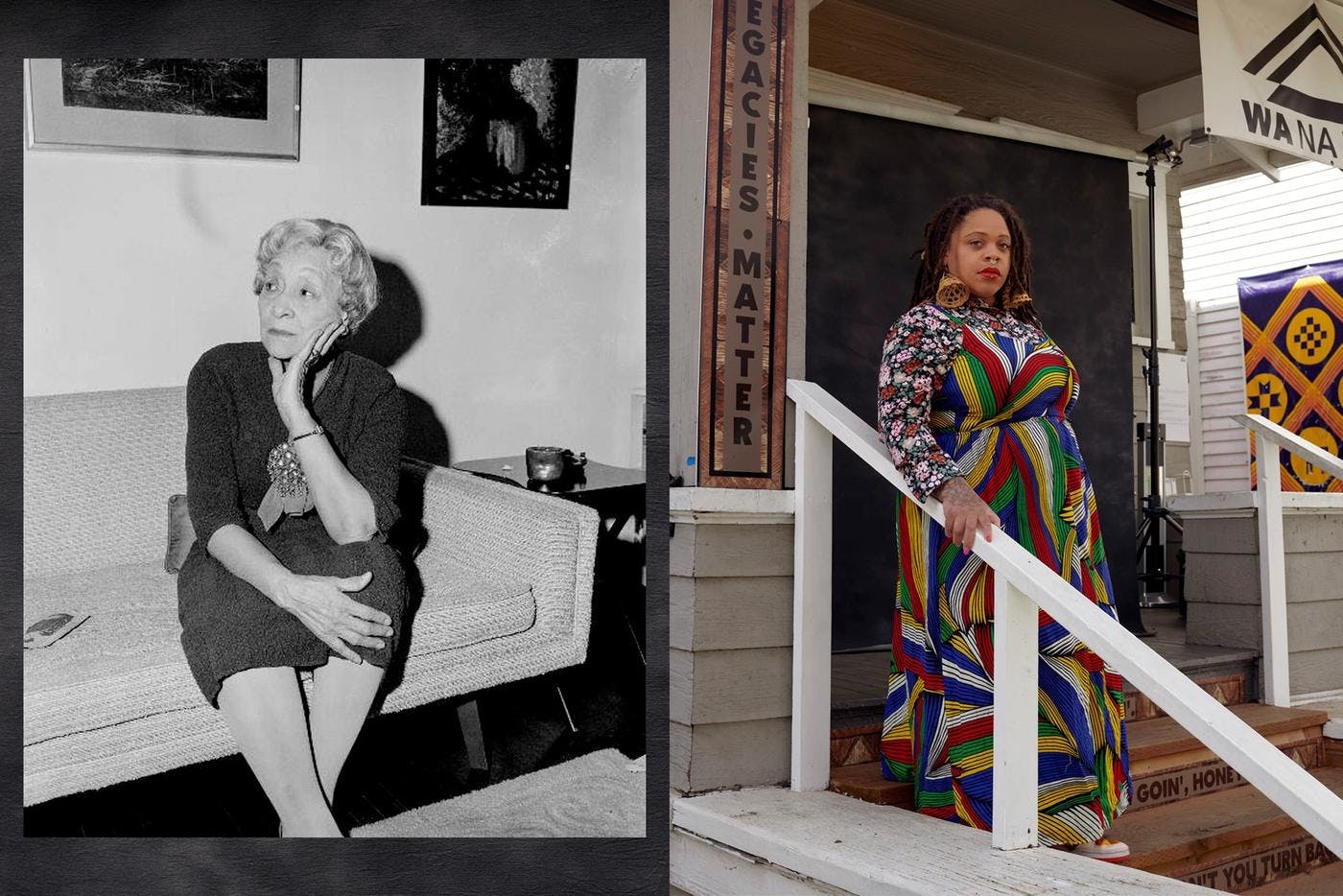
Two curators separated by decades turn homes into galleries to support artists.
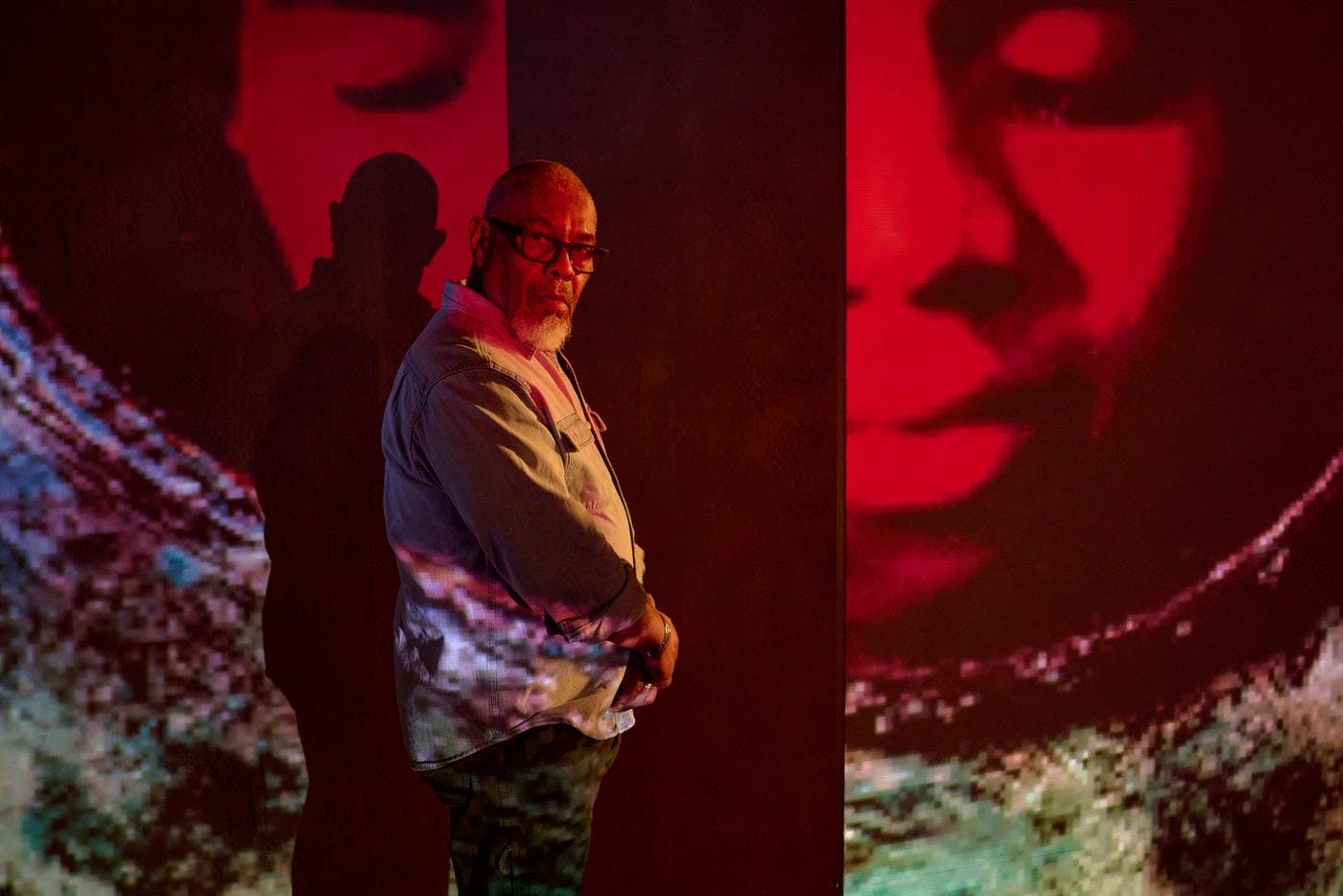
The influential art teacher uses books, found objects and photography to provoke thought and shift perception.
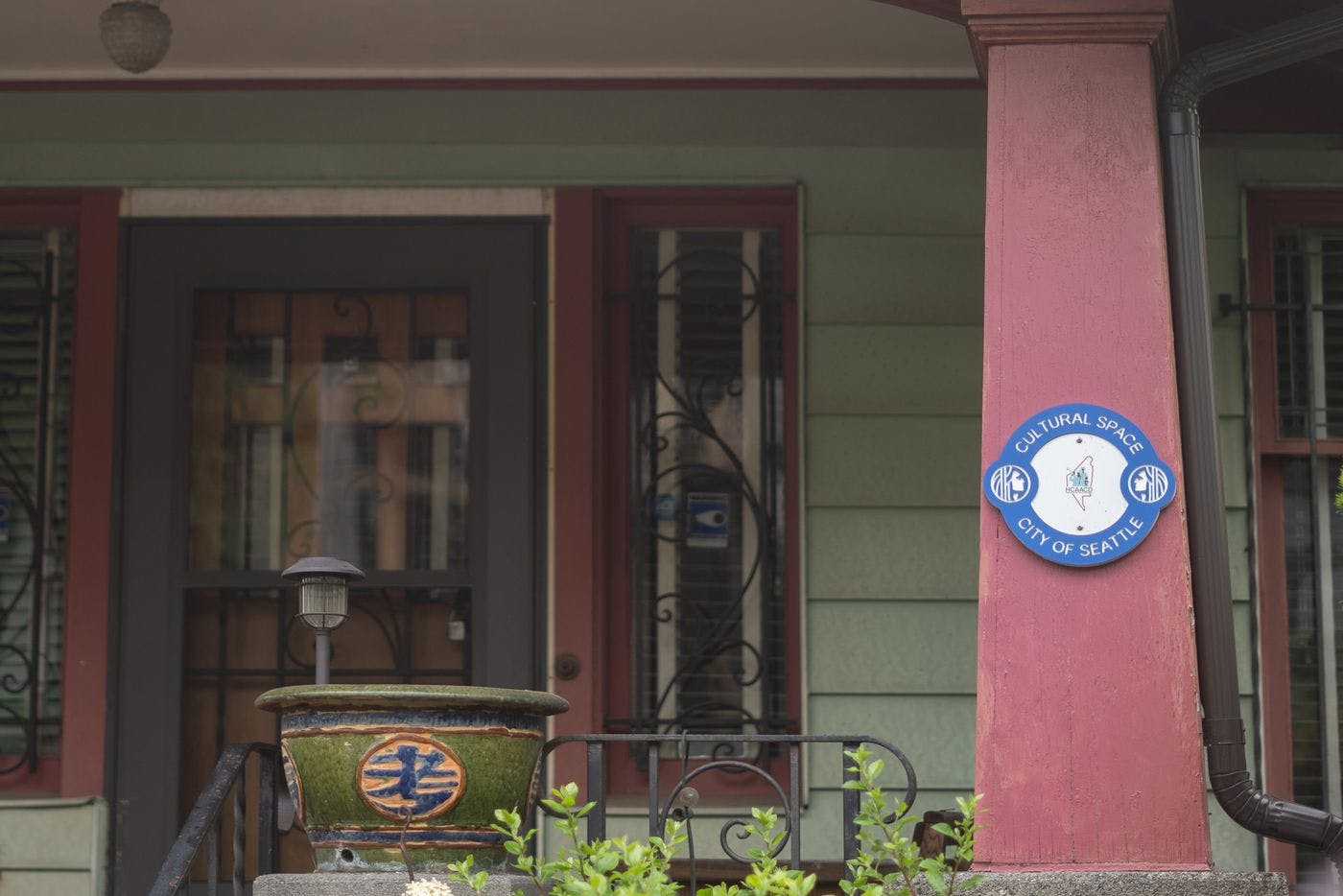
The late couple's house is now a cultural center that inspires the next generation.
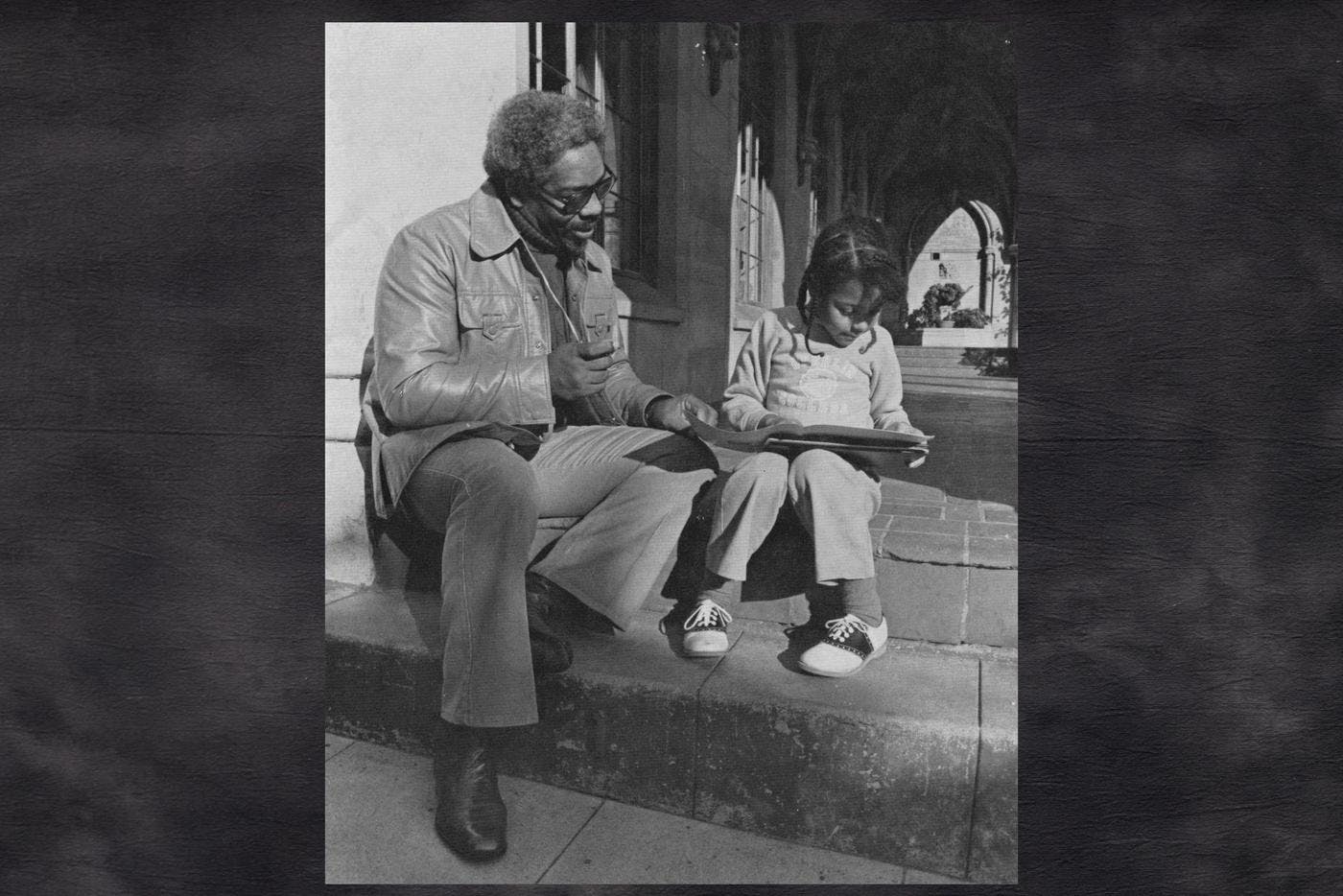
The late director, producer, stuntman and teacher used film and video production to lift up the voices of Seattle’s Black community.
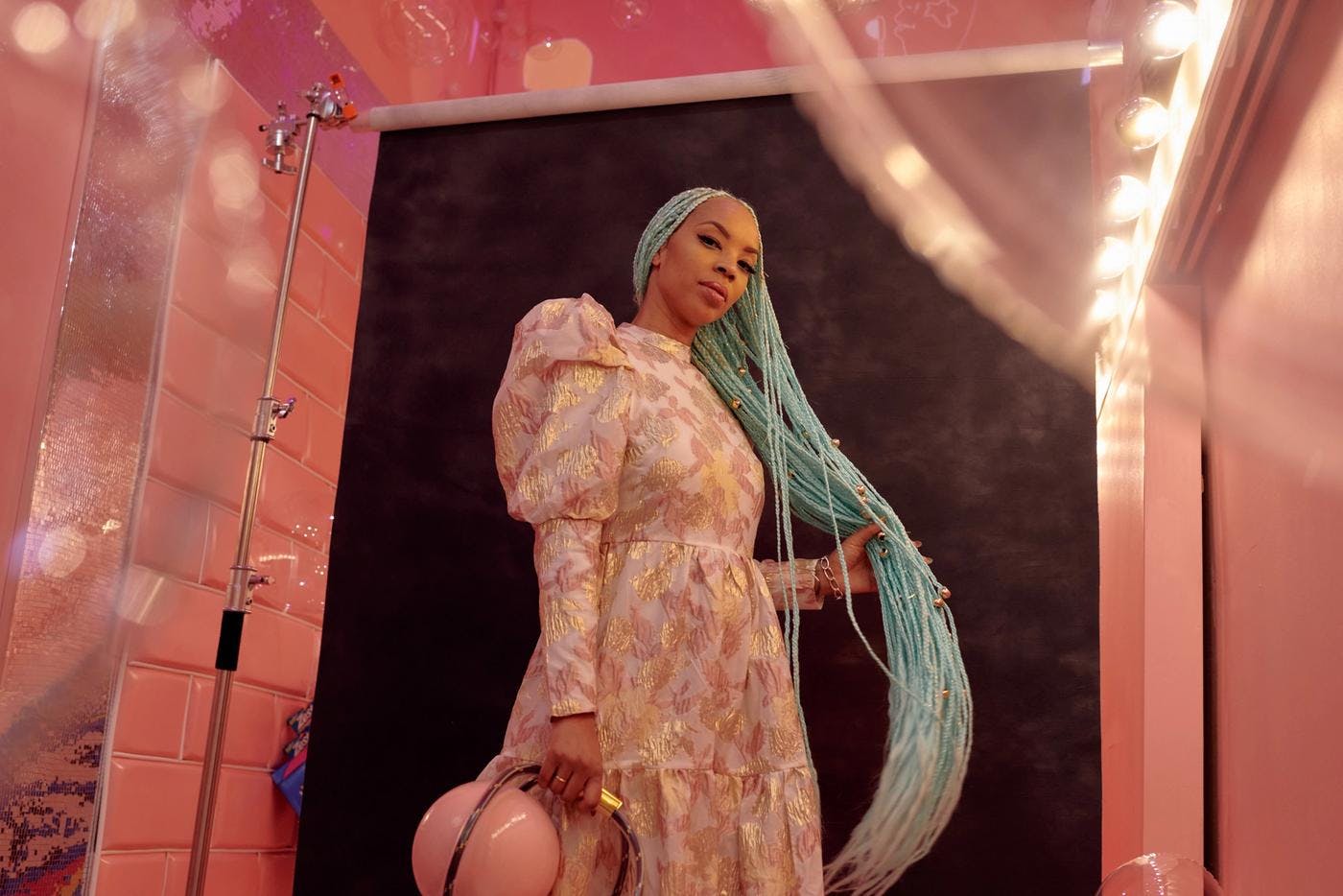
The curator, gallerist and artist is resisting the art establishment with bold immersive experiments.
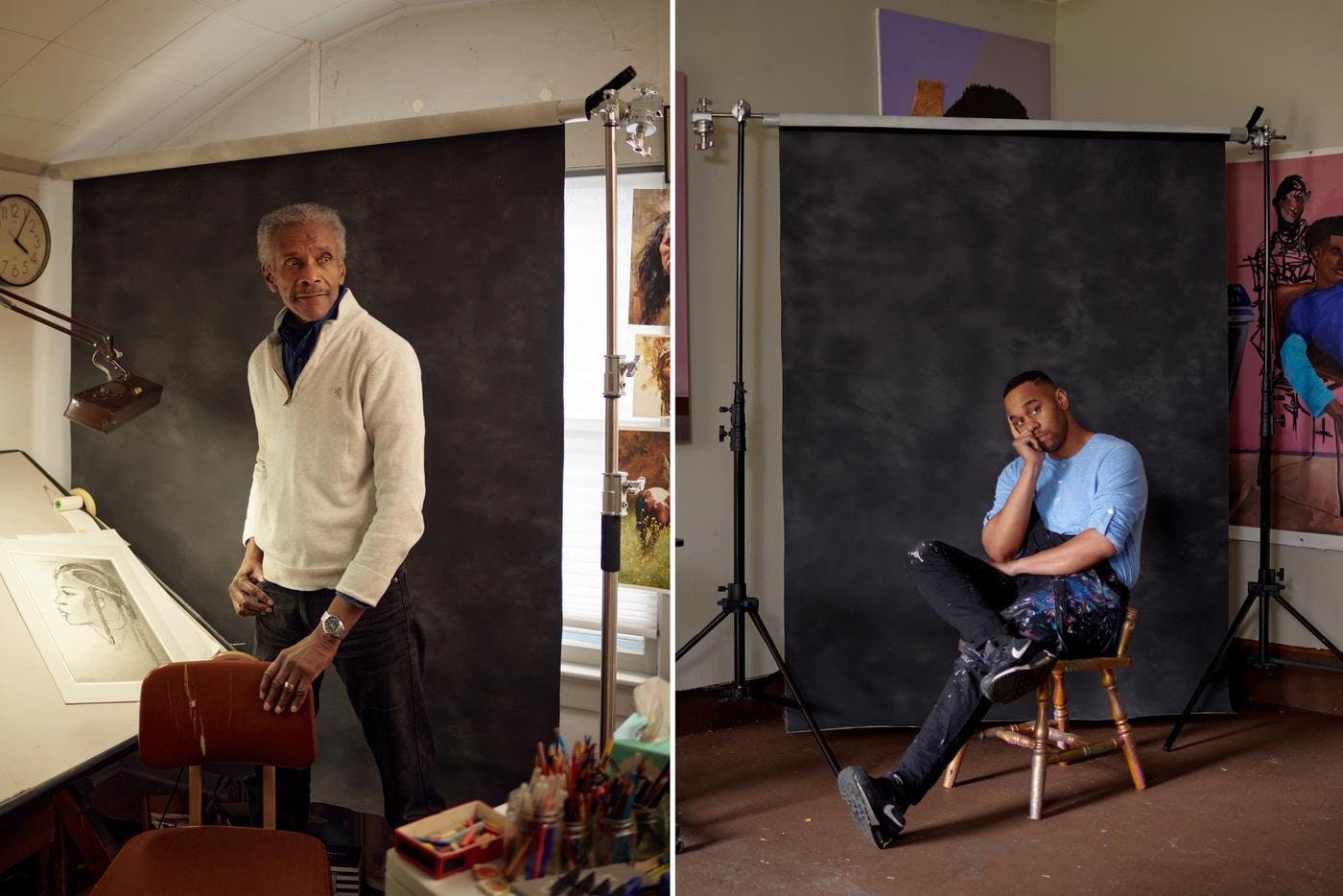
From intricate portraits to multistory murals, the artists bring Black history and bold color to the cityscape.
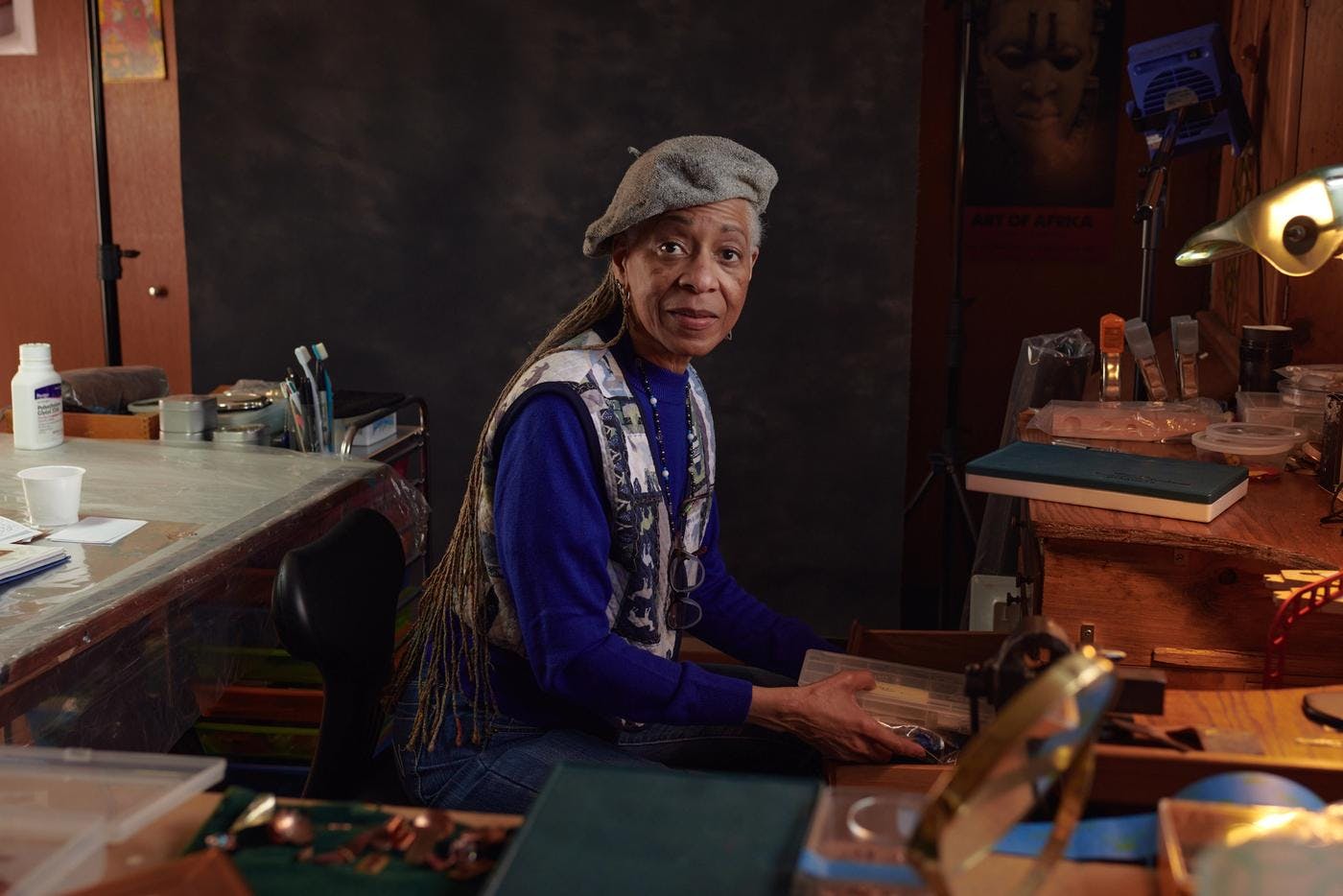
Through ceramics, sculpture, jewelry and public art, the multifaceted artist makes Black history tactile.
Thanks to our Sponsors
Your support helps Crosscut create projects like Black Arts Legacies. Learn how you can help with a one-time donation or recurring membership.
Support Crosscut